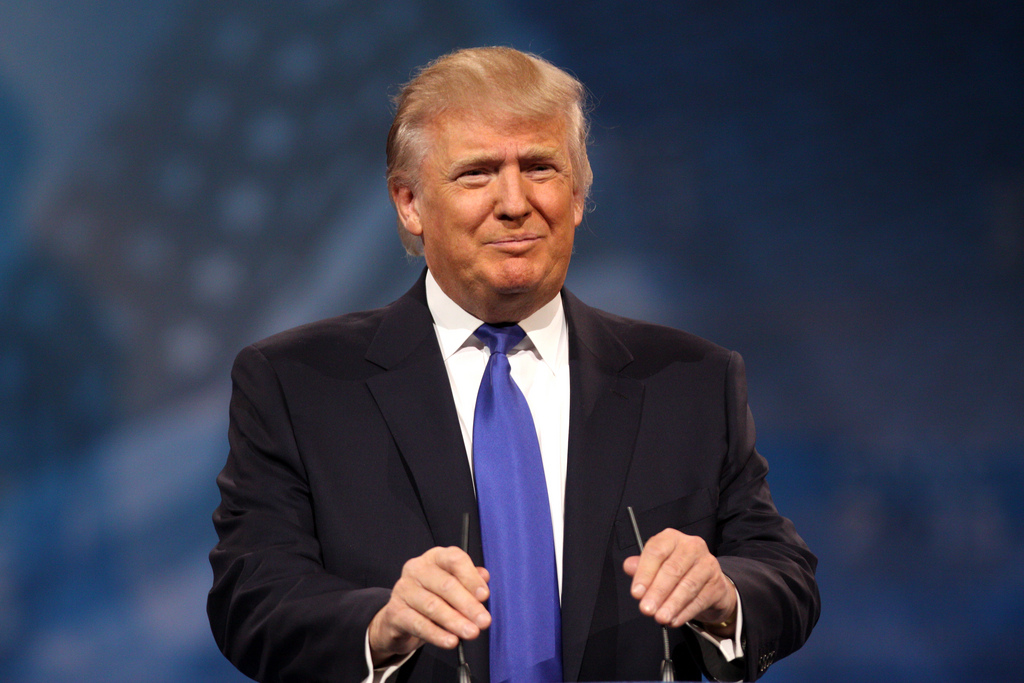By Rachel Dodd
Before President Trump took office in January, private prisons were struggling to sustain profits and were losing a substantial number of investors.[1] Heading into the election, the future of the private prison industry looked grim.[2] The Justice Department even stated in August 2016 its intention to decrease the use of private prisons for federal prosecutions.[3] After this announcement, the two largest private prison companies in the United States, CoreCivic and GEO Group, saw its stock go down by thirty-five percent.[4]
Even though its stocks were plummeting, CoreCivic and GEO group openly donated $250,000 each to President Trump’s presidential inauguration.[5] Within the first couple days of taking office, President Trump reversed the policies that were diminishing CoreCivic and GEO Group’s profits.[6] He issued an executive order that called for increased deportation of undocumented migrants by the Immigrations and Customs Enforcement (ICE) and renounced the federal government’s plan to phase out contracts with private prisons for federal prosecutions.[7] To support the crackdown on illegal immigration, the Trump Administration also proposed a $1.6 billion increase in ICE’s budget to increase the number of beds at detention facilities from 34,000 to 51,000.[8]
Private prisons will likely be the ones to support these actions.[9] CoreCivic’s CEO Damon Hininger commented on the new immigration policies and its effect on ICE in an interview stating, “ICE expects the implementation of new policies and executive orders to lead to increases in arrest [sic]…ICE expects the average length of stay for detainees to increase as a result of increased interior enforcement.”[10] ICE has historically outsourced the majority of its detention center operations to private contractors.[11] A study by the Department of Homeland Security in 2016 indicated that 65% of the people ICE detained were sent to private prisons.[12]
Furthermore, part of Trump’s proposed ICE’s 2018 $1.6 billion budget increase includes a quota system for detainees that would be used in many for-profit ICE detention centers.[13] Currently, the Department of Homeland Security pays $126 a day for each detainee in its detention centers.[14] The quota system will save money if ICE can keep the beds filled.[15] Although this may save the federal government money, the effect of doing so protects private prison’s profits.[16] GEO group has affirmed that this kind of quota system plays a crucial role in the success of their business model and its ability to sustain increased profits.[17]
Private prison companies will continue to benefit from the Trump administration’s policies.[18] Unfortunately, this comes at a high ethical cost. The practice of imprisoning people to privately-owned prisons and detention centers has led to “understaffing, inadequate mental-healthcare, and in some cases inadequate meals.”[19] Furthermore, studies show inmates in privately owned prisons receive more misconduct violations than government-owned prisons, making it increasingly difficult for inmates to apply and attain parole.[20] Private prisons profit from people who break the law, giving them all the incentive to keep criminals in as often and long as possible.[21] Inevitably, increased arrests and longer detention lengths sanctioned by the new executive order will multiply the number of detainees at private prisons, who will profit off of each new prisoner it receives.[22]
[1] Farah Mohammed, The problem with privatizing prisons, JSTOR Daily (May 15, 2017), https://daily.jstor.org/the-problem-with-privatizing-prisons/ (last visited Aug. 25, 2017).
[2] Id.
[3] James Surowiecki, Trump sets private prisons free, The New Yorker (Dec. 5, 2016), https://www.newyorker.com/magazine/2016/12/05/trump-sets-private-prisons-free (last visited Aug. 25, 2017).
[4] Id.
[5] Michelle Mark, Private prison companies are saying Trump’s immigration crackdown is looking good for business, Bus. Insider (Aug. 09, 2017, 6:05 PM), https://www.businessinsider.com/geo-group-corecivic-private-prisons-trump-immigration-crackdown-good-business-news-2017-8 (last visited Aug. 23, 2017).
[6] Lise Olsen, Private prison boom in Texas and across America under Trump’s immigration crackdown, Hous. Chron. (Aug. 21, 2017, 10:18 AM), https://www.houstonchronicle.com/news/houston-texas/houston/article/Private-prisons-boom-in-Texas-and-across-America-11944652.php (last visited Aug. 23, 2017).
[7] Ersela Kripa & Stephen Mueller, Growing private detention industry threatens immigrants’ rights on the U.S.- Mexico border, The Architect’s Newspaper (Aug. 21, 2017), https://archpaper.com/2017/08/private-detention-industry-us-mexico-border/#gallery-0-slide-0 (last visited Aug. 23, 2017).
[8] Olsen, supra note 6.
[9] Eli Watkins & Sophie Tatum, Private prison industry sees boom under Trump administration, Cable News Network (Aug. 18, 2017, 10:51 AM), https://www.cnn.com/2017/08/18/politics/private-prison-department-of-justice/index.html (last visited Aug. 23, 2017) (noting that the Bureau of Prisons renewed two contracts for GEO Group in May and CoreCivic noted the Trump administration would lead to more contracts).
[10] Mark, supra note 5 (explaining that interior enforcement efforts may create demand for detention capacities across prisons in the United States).
[11] Watkins, supra note 9 (arguing that private prisons will see an increase in illegal immigrant detainees during the Trump administration).
[12] Id.
[13] Olsen, supra note 6 (stating the increase in ICE’s budget will increase the number of beds in private detention centers like GEO Group and CoreCivic).
[14] Mark, supra note 5 (arguing that quotas will save ICE money if they can keep beds filled).
[15] Olsen, supra note 6 (stating that quotas benefit the government because they will pay a fixed rate for certain number of detainees if they keep the beds filled).
[16] Id.
[17] Id.
[18] Surowiecki, supra note 3 (arguing that Trumps policies will work to private prisons’ benefit, especially his hard-lined stance on immigration will be certain to increase the number of beds in private prisons)
[19] Surowiecki, supra note 3 (stating the ethical costs of outsourcing imprisonment).
[20] Id.
[21] Id.
[22] Mark, supra note 5 (arguing that longer detention lengths lead to more profits for companies).


